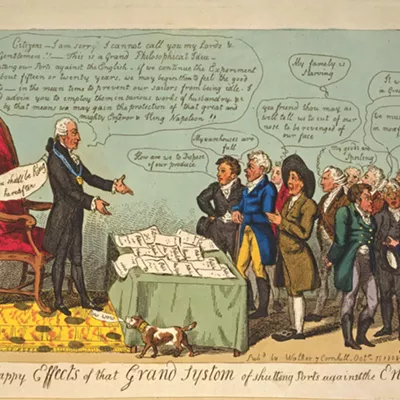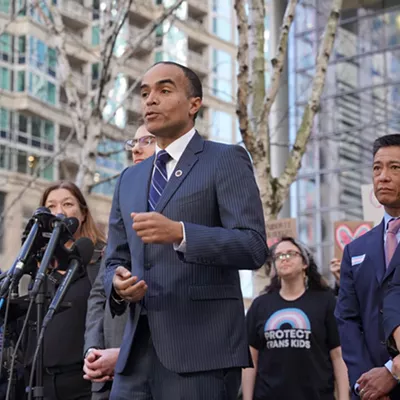It's a pattern in American politics any time a budget crisis unfolds. The first cuts are made to education, social services and, of course, the arts.
But it’s something people in the arts are getting used to — especially those in Eastern Washington.
“It’s not like we’ve been at some sort of optimal position for the entire history of the organization and suddenly someone’s going to cut off our legs,” says Karen Mobley, arts director for the Spokane Arts Commission, the only paid staffer in the department.
Kris Tucker, executive director for the Washington State Arts Commission, agrees. The 10 percent cut to the commission is insignificant, she says, compared to the 55 percent decrease the department has seen in its budget over the last three years.
The commission is tasked with distributing funding each year through grants to many arts organizations. Locally, it has funded the Spokane Symphony Society, Connoisseur Concerts Association and Spokane Folklore Society, among others.*
The Northwest Museum of Arts and Culture received $3 million in the state budget — about a 5 percent cut from the MAC’s current funding levels — allowing it to remain open.
For some, like the Spokane Symphony Society, the $10,000 grant they received this fiscal year is miniscule compared to their $3.2 million budget. The Connoisseur Concerts Association has a $150,000 budget overall. It received a $1,000 grant for the fiscal year ending this month.
“When large music organizations fail, smaller organizations are going to be right behind,” says the concert association’s Executive Director Gertrude Harvey. “So times are precarious for all of us, large and small, and each dollar we receive in support is highly valued and necessary to the organization’s survival.”
On the other side of the financial spectrum lies the Hispanic Business Professional Association of Spokane, which received a $1,500 grant last year for their Hispanic Heritage Festival — a grant they’re unlikely to receive again. And with an overall budget of $12,000, the grant represents a large part of their funding that will be hard to replace.
“We are writing grants and looking to support from area businesses,” says Cynthia Vigil, the association’s president.
“At this point, we are moving forward with the event and hoping that funding will come through.”
Mobley, with the Spokane Arts Commission, says that since she joined the department 15 years ago, all other paid positions have been cut. The group remains supported by a volunteer board.
“I would also say that most people who work at the arts … have been through a couple phases where things looks a little bleak,” she says. “But you know you’ll weather it and come out on the other side.”
* A previous version of this story incorrectly characterized the role of the Washington State Arts Commission.





















